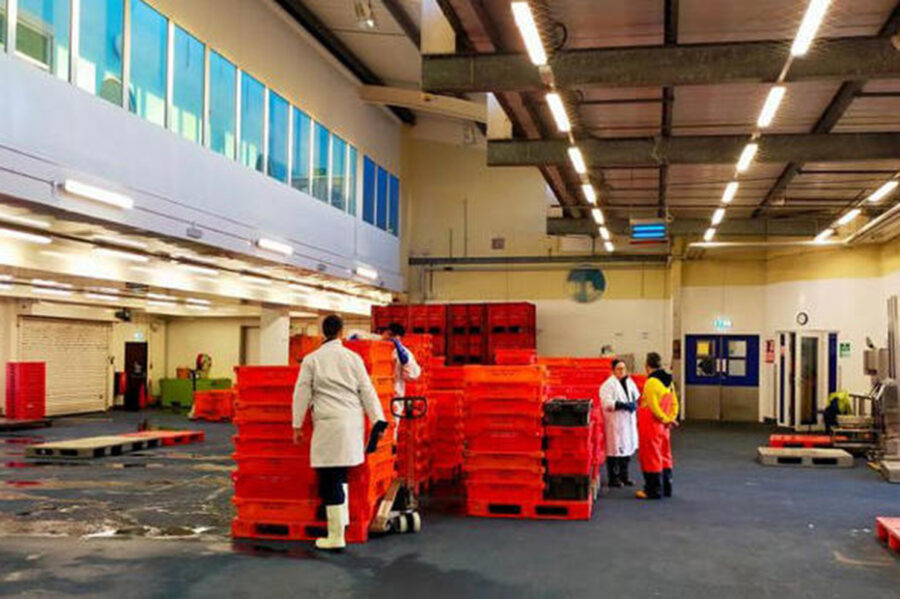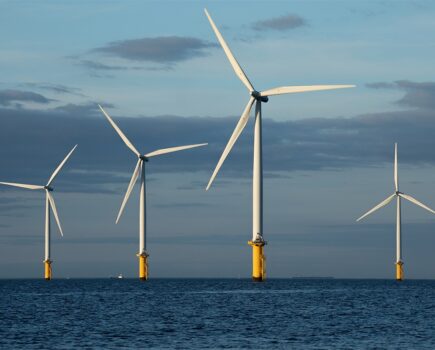As the anniversary of the closure of Plymouth Trawler Agents (PTA) looms – the company closed in May last year, the report on options for the future operation of the site has finally been published.
PTA introduced one of the first electronic fish auctions in the UK a generation ago. The well-regarded company ceased trading voluntarily, whilst still solvent, in a way that minimised disruption to fishermen landing to the port, after exhausting options to make operation of the auction financially viable.
It was hoped that the report, commissioned by Sutton Harbour Company, Plymouth Fishing and Seafood Association and Plymouth City Council, would propose ways in which a new fish auction could be set up, enabling the £14m of fish and shellfish landed into the port to be sold directly, rather than consigned for sale elsewhere.
However, the report, by Tegen Mor Fisheries Consultants, suggests that the significant upfront investment required to revive the auction, combined with the ongoing running costs, at a time of reducing quotas and demand from larger processors, means that a new auction company would not be financially viable.
Plymouth remains the fourth most valuable landings port in England, behind only Newlyn, Brixham and Shoreham, with a diverse array of vessels including day-boats, scallopers, beamers and trawlers, and a state of the art pelagic factory. The report suggests a number of ways in which the port could continue to encourage landings, support the existing fleet, and add value to the fish and shellfish that comes into Plymouth.
Local fish wholesalers, and the Plymouth fleet itself, were keen to support a new auction but, the report says, lack of enthusiasm from large processors elsewhere, who now have established routes and links with the much larger sales in Newlyn and Brixham, meant that a new Plymouth auction would fail to gain critical mass.
The news is not all bad: ongoing costs of maintaining and servicing the landing equipment, storage facilities and other services provided to vessels currently landing in Sutton Harbour could all be met with the additional footfall and income possible from developing the spaces vacated by the auction.
The report recommends that a development plan costed in 2018 should be revisited, with an application for funding of a redesign of the market building that ‘would provide scope for greater economic return from the building through the provision of opportunities for mixed retail, foodservice, direct sales to public, and education through greater public access’.
Plymouth Council leader Tudor Evans said of the report’s findings: “We are keen to keep Plymouth fishing, and will be looking to prioritise continued support for the fishmarket site in our conversations and economic development initiatives.
“The fishing industry in Plymouth is part of our fabric and identity. It’s been here for hundreds of years, and is as much a part of Plymouth as the naval base. We must focus on retaining the facilities that allow boats to continue to fish from Plymouth and to land their catch here.We will look to embed this as
a priority within our economic planning for the future, and will be supportive of activities that complement this offering.”
Philip Beinhaker, CEO of Sutton Harbour Company, which owns the site, said: “Fishing is an important part of the historical legacy and current industrial activity in Plymouth. The fish quay carries within it tremendous potential and opportunity for a modern multi-purposed site to include, among other things, industrial, retail, commercial, educational and research uses to enliven the quarter and provide new facilities and avenues for the industry for years to come.”
The Plymouth fleet has adapted to the loss of the auction in a number of ways, with some vessels landing further afield, at least for part of the year, some smaller vessels trying direct sales, and fish for auction being transported to Brixham, and a lesser extent Newlyn.
Increased transport costs have hit smaller day vessels, landing small volumes of relatively low-value species, especially hard, with owners reporting that they are losing the premium for the freshest fish
as a result of delays in reaching auctions elsewhere. Whilst there are hopes that increased footfall and demand from a revitalised auction site will be a fillip to the local fleet, the loss of income for some species and at certain times of year will still hit their bottom line, they say.
Edward Baker, CEO of the PFSA, said: “It is sad and worrying not to have an auction in Plymouth – its absence increases costs for vessels and merchants on the quay. Our job now is to find ways that we can compensate for the increases in costs by increasing the quantity and value of their sales.”
This story was taken from the latest issue of Fishing News. For more up-to-date and in-depth reports on the UK and Irish commercial fishing sector, subscribe to Fishing News here or buy the latest single issue for just £3.50 here.
Sign up to Fishing News’ FREE e-newsletter here.








